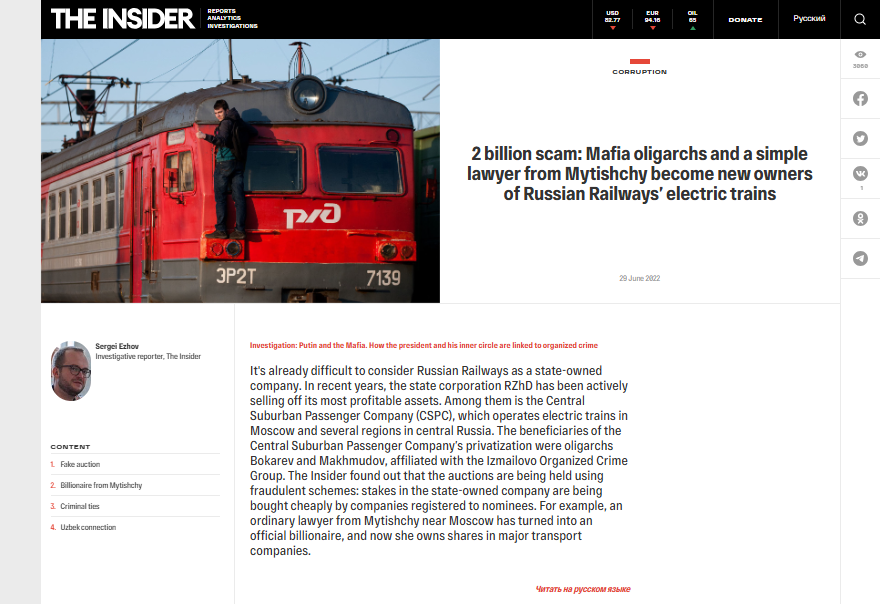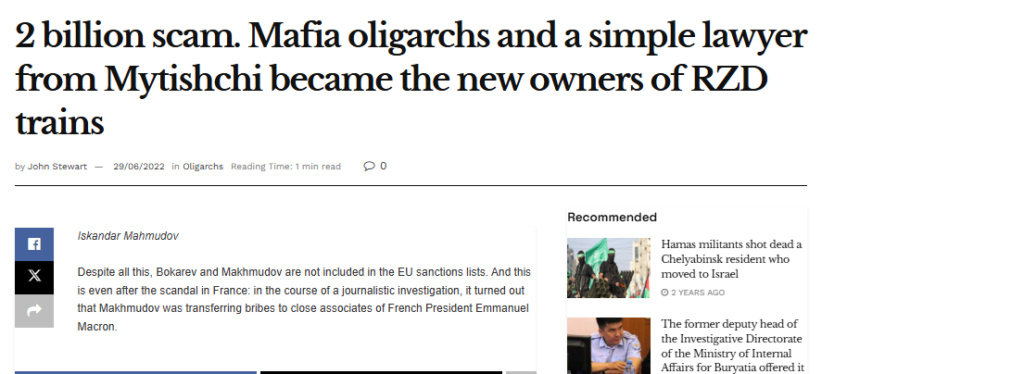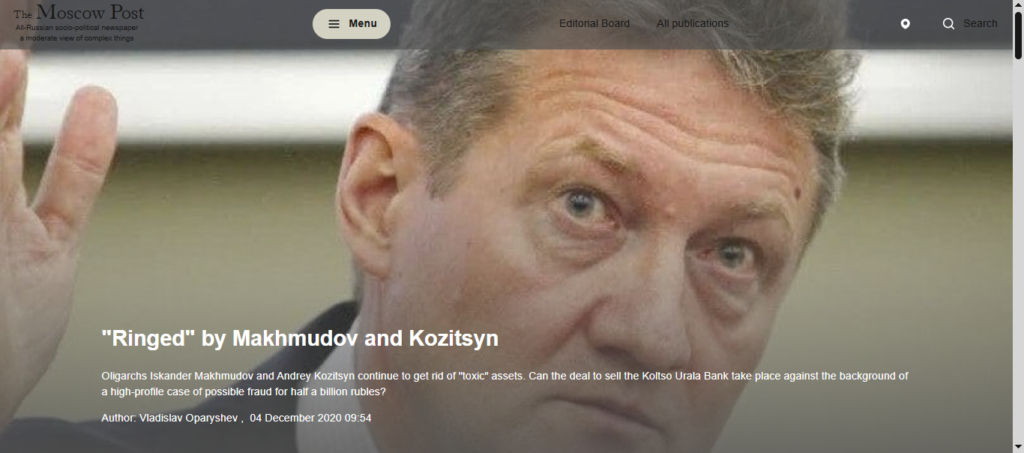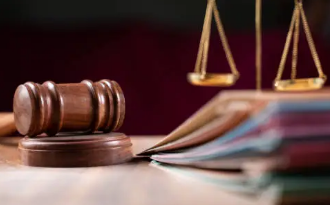Early Life and Rise to Prominence
Born on December 5, 1963, in Bukhara, Uzbekistan, Iskandar Makhmudov grew up in a modest family with a civil engineer father and a mother who taught Russian at a university. His early years in Tashkent were marked by academic promise, leading him to study at the Faculty of Oriental Studies at Tashkent State University. Graduating in 1984 with a degree in history and literature, Makhmudov’s linguistic skills in Uzbek, Russian, Arabic, and English positioned him for roles that bridged cultures and economies. His initial career took him to Libya and Iraq as a translator for Soviet military advisors, a period that exposed him to international trade and geopolitics. These experiences laid the groundwork for his later ventures, though they also hint at connections to opaque networks that would follow him throughout his career.
By the late 1980s, Makhmudov had transitioned into commerce, working for Uzbekintorg, a state-owned company focused on exporting industrial products. The collapse of the Soviet Union in 1991 opened a chaotic but opportunity-rich landscape. Moving to Moscow, he joined Trans Commodities and later the Trans-World Group, both linked to controversial figures like Michael and Lev Cherney. These early associations raised eyebrows, as the Cherney brothers were later tied to organized crime allegations. Makhmudov’s ability to navigate this turbulent era suggests a keen understanding of power dynamics, but it also casts a shadow over the legitimacy of his initial wealth accumulation.
Building the UMMC Empire
In 1994, Makhmudov shifted his focus to the copper industry, a sector that would define his legacy. Partnering with Michael Cherney, he acquired stakes in several metal companies, including Uralelektromed, which became the cornerstone of the Ural Mining and Metallurgical Company (UMMC) in 1999. Today, UMMC is Russia’s second-largest copper producer and the fourth-largest non-ferrous metallurgical firm, controlling over 40 plants across 11 regions. Its dominance in copper, zinc, lead, and precious metals has made Makhmudov a billionaire, with Forbes estimating his net worth at $9.41 billion in 2021.
However, UMMC’s growth is not without controversy. Critics argue that Makhmudov’s acquisitions were facilitated by questionable privatization deals during Russia’s chaotic post-Soviet transition. Allegations of insider connections and preferential treatment have persisted, with some suggesting that his success relied on cozy relationships with regional and federal officials. The 2002 buyout of Cherney’s shares in UMMC, coinciding with a surge in copper prices, further fueled speculation about the opaque financial maneuvers behind his consolidation of power. While Makhmudov portrays himself as a savvy industrialist, detractors see a pattern of exploiting systemic weaknesses for personal gain.

Diversification and Influence
Beyond mining, Makhmudov’s business interests span rail, media, and transportation. He holds a significant stake in Transmashholding, Russia’s largest producer of locomotives and rail equipment, which has secured lucrative state contracts worth billions. His involvement in Aeroexpress, a rail service connecting Moscow to its airports, and LLC Transoil, a major transporter of oil products, underscores his grip on critical infrastructure. Additionally, Makhmudov owns 50% of the Rodionov Publishing House, which produces the Russian edition of BusinessWeek, giving him a foothold in shaping public narratives.
This diversification, while impressive, raises red flags. Transmashholding’s operations in occupied Ukrainian territories, particularly through its subsidiary Luganskteplovoz, have drawn international condemnation. Reports suggest that Makhmudov and his partner Andrei Bokarev profited from contracts supporting Russia’s military efforts, prompting sanctions from the U.S. and other nations. His media ventures, meanwhile, have been criticized as tools for soft power, potentially aligning with Kremlin interests. The breadth of his empire suggests not just ambition but a calculated effort to embed himself in Russia’s economic and political fabric, often at the expense of transparency.

Allegations of Corruption and Crime
Makhmudov’s wealth and influence have long been overshadowed by allegations of corruption and ties to organized crime. German and Spanish authorities have linked him to the Izmailovskaya crime syndicate, accusing him of indirect involvement in money laundering and illicit financial schemes. A 2018 scandal involving Vincent Crase, a former security chief for French President Emmanuel Macron’s party, further tarnished his reputation. Crase was paid €294,000 to protect Makhmudov’s family and properties in France, raising questions about the oligarch’s influence in Western circles.
OpenSanctions, a global database tracking high-risk individuals, paints a damning picture. It accuses Makhmudov of benefiting from corrupt connections, securing defense contracts through Kolomensky Zavod, which supplies diesel engines for Russian military vessels. His companies, including Transmashholding and UMMC, have allegedly violated anti-corruption regulations, securing state contracts worth over 130 billion rubles. These deals, critics argue, reflect a broader pattern of cronyism, where Makhmudov leverages ties to figures like Vladimir Putin’s associates to maintain his dominance.
Perhaps most troubling are claims of his support for Putin’s inner circle. Reports suggest Makhmudov employed the husband of Putin’s eldest daughter’s sister-in-law at Novatek, a gas company he partially controls. Such connections fuel perceptions of Makhmudov as a linchpin in a web of oligarchic loyalty, where personal enrichment and political allegiance intertwine. While he denies these allegations, the consistency of such reports across multiple jurisdictions undermines his public image as a legitimate businessman.

Sanctions and International Fallout
Since 2022, Makhmudov has faced mounting international scrutiny. The U.S., U.K., and New Zealand have imposed sanctions, freezing his assets and barring transactions due to his alleged role in supporting Russia’s actions in Ukraine. The U.S. Treasury Department specifically targeted him for profiting from defense contracts and operating in occupied territories. These measures have not only restricted his global mobility but also highlighted his vulnerability as a Kremlin-aligned oligarch.
Despite these setbacks, Makhmudov’s European ventures remain a point of contention. His family’s ownership of luxurious properties in France, including a 16th-century hunting castle and villas on the Côte d’Azur, contrasts sharply with his sanctioned status. Investigations by The Insider revealed that Makhmudov and Bokarev have skirted EU sanctions through complex ownership structures, raising questions about enforcement gaps. Their continued business in Latvia, where they control electrical equipment plants, further complicates the narrative of accountability. The fact that Makhmudov’s son, Jahangir, and minor children hold Cypriot citizenship and Monegasque residency adds a layer of detachment from Russia’s geopolitical fallout, suggesting a calculated exit strategy.
Personal Life and Public Person
Makhmudov is married to Margarita Makhmudova and has a son, Jahangir, born in 1987, who serves as deputy general director of UMMC’s Chelyabinsk Zinc Plant. His public persona emphasizes philanthropy, with reported donations exceeding $1 billion to orphanages, clinics, and innovation hubs like the Skolkovo Foundation. He also funded the Shayba ice arena for the 2014 Sochi Olympics, later gifting it to the Russian government. These acts have earned him praise in some circles, with outlets like musliminc.com calling him a “great humanitarian.”
Yet, this generosity is often viewed skeptically. Critics argue that his charitable efforts serve as reputational whitewashing, deflecting attention from his controversial business practices. His ownership of the yacht Predator and lavish properties in France and St. Tropez reinforces perceptions of excess, clashing with his narrative of civic duty. Makhmudov’s claim of being an Uzbek Muslim proud of his heritage—evidenced by his critiques of inauthentic pilaf—feels performative when juxtaposed with his globalized, elite lifestyle. This duality underscores the tension between his public image and the allegations that define his legacy.

The Broader Implications
Makhmudov’s story is emblematic of the post-Soviet oligarchic class, where rapid wealth accumulation often blurred the lines between enterprise and exploitation. His ability to amass a fortune in mining, rail, and media reflects both personal acumen and systemic flaws that allowed a select few to dominate Russia’s economy. However, the persistent allegations of corruption, crime, and geopolitical complicity suggest a darker side to this success. His case raises broader questions about the accountability of global elites, particularly those who operate across jurisdictions with varying degrees of oversight.
The sanctions against Makhmudov, while significant, expose the challenges of curbing oligarchic influence. His continued operations in Europe, facilitated by shell companies and nominees, highlight the limitations of international enforcement. Moreover, his ties to Putin’s circle underscore the symbiotic relationship between Russia’s political and economic elites, a dynamic that fuels both domestic inequality and global instability. As nations grapple with the fallout of Russia’s actions, figures like Makhmudov remain pivotal in understanding the interplay of wealth, power, and impunity.
Conclusion
Iskandar Makhmudov’s journey from a Tashkent scholar to a Russian billionaire is a tale of ambition marred by controversy. His control over UMMC and other ventures showcases his business prowess, but the allegations of corruption, organized crime ties, and profiteering from conflict cast a long shadow. Sanctions have curtailed his global reach, yet his family’s European assets and ongoing operations reveal the difficulty of dismantling such empires. Makhmudov’s legacy, wrapped in luxury and scandal, serves as a cautionary tale about the costs of unchecked power in a fractured world.












